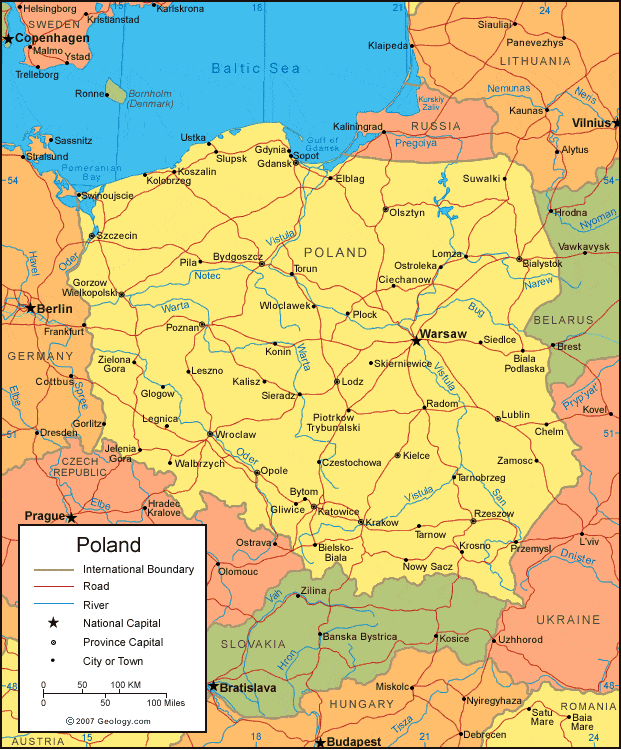By Robbin Laird
The impact of the war on the European front-line states is very significant. It also one of the most underreported aspects of the dynamics of change within Europe. Much of the U.S. coverage is upon European solidarity, NATO, and the arming of the Ukrainians. Yet the challenges within the continent are leading to significant change, and the fault line between those states who build their approaches around national identities embodying the importance of self defence and alliance solidary and those who do not has deepened.
Poland is clearly a state which has suffered from the war and in which Polish national identity enhanced and with it the priority on co-operation with like-minded states in Europe and more broadly in the liberal democratic world.
To assess these changes, I recently spoke with my friend and colleague Robert Czulda.
I met him when visiting Poland in the Fall of 2021 and attending a Defence 24 conference in Warsaw. We have continued our conversation on a regular basis since that time.
We started by discussing the question of the impact of the war on life in Poland.
He argued that the war came as a shock but perhaps not as a surprise. Poles have a culture that has faced war many times, but now a lethal conflict was unleashed directly on their border. Unlike for Americans where is somewhere you send troops, for the Poles war is where they live.
Poland has become a transit route and home to millions of Ukrainians. Czulda cited statistics from the Polish Border Guard that since 24 February 2022, 9.4 million Ukrainians have crossed the Polish-Ukrainian border. This represents a number which is 25% of the Polish population.
The out-migration has been accompanied by worsening economic conditions.
Czulda pointed out that inflation is about 18% with tremendous demand for housing, food, goods, and services driving up costs.
When I was in Warsaw in the Fall 2021, I talked with several analysts about the path of military modernization being taken by Poland. This path was breaking the Warsaw Pact legacy of Poland and was seeing increased emphasis on air-ground integration and on modernizing the ground maneuver forces.
And when I was there, Poland was dealing with the Belarusian migrant battering ram, and did so in part by strengthening the border guard and policies to deal with migration.
So what is the situation now?
Professor Czulda underscored that Poland was facing a national emergency. The focus was on getting enough capability to hold off the Russians, and this meant that the government was buying new equipment as rapidly as they could and putting off the challenge of integration of all of these diverse pieces of kit until a future day.
There was a clear strategic shift as Poland sheds itself of legacy Warsaw Pact equipment and transferred that to Ukraine. In its place, they were buying American, European and South Korean equipment.
The South Korean piece is most interesting, and Czulda has written a comprehensive piece on this development.
Poland is buying main battle tanks, and training/combat aircraft the T-50 aircraft, and other pieces of ground combat equipment. Although the rather large question remains of how Poland will pay for what its contracting to buy, the impact on the Polish military is significant.
As Czulda noted in his article: “Massive procurement in South Korea have not gone unnoticed abroad. According to Dmitruk’s financial analysis, in the absence of industrial ‘Polanization,” South Korean companies would be responsible for 28% of Polish modernization efforts, while U.S. share would drop to 33%. European involvement would be just 12%.”
In my discussion, he highlighted one consequence of the Russian invasion which worsens considerably the Russian military position in Europe.
Virtually all of Russia’s geographical neighbors have looked at Russian atrocities against Ukrainians and have included they cannot trade or space for time.
They need to defend their border regions against any Russian incursion which can only lead to a desire to have capabilities to attack the Russians on their side of the order.
With regard to partners in allies in Europe and in NATO, Czulda noted that the war has had a significant impact or a reinforcing impact on Polish attitudes.
“For Poles, it is NATO, not the EU, who is a security provider in Europe – the EU can be only a secondary provider. Poland has a limited confidence in European partners (particularly France and Germany) which also impacts on Polish approach towards European defense industrial cooperation. Of course, Poland does not reject such cooperation, but it has rather a secondary meaning.
“The Americans once again have demonstrated that they are a leader of Europe. On the one hand this is good, but on the other it is not – European leaders failed to take a leadership and do more. Once again, we had to look at the White House.
“Germany has lost much of its reputation as the legitimate leader of Europe. Many people understood that they are pro-Russian, and many people believe that they want to go back to business as usual. There are many negative comments about Germany nowadays in Poland coming from people who previously did not have a negative attitude towards Germany.
“On the one hand this is not good, because a crisis in Germany will impact us, but on the other hand it has a positive side. Germany wants to neutralize Polish sovereignty and Germany’s position is exposed.
“We still have strained relations with the EU. This is a battle of two concepts – federal Europe and a Europe of sovereign nations. Also, it seems that the EU has been failing to pay Poland for the arms we deliver to Ukraine.
“We need to build deterrent capabilities. What are they and how to do them will be debated.
“But for Poles, the need for deterrence rather than believing that Russia has any interest in a real partnership is obvious. For Germany it is not.”
Also, see the following:


